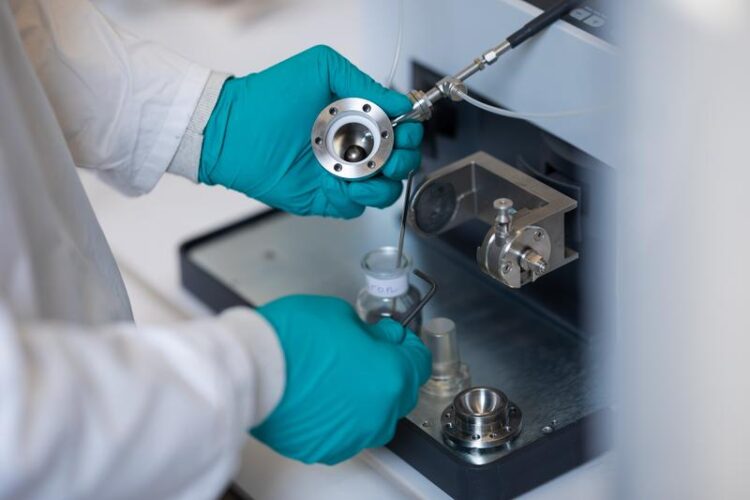A closer look at mechanochemistry

The Schüth group will have a closer look at what is happening on a molecular level inside a ball mill.
(c) Patrick Kaut / MPI für Kohlenforschung
Ferdi Schüth and his team at the Max Planck Institut für Kohlenforschung in Mülheim/Germany have been studying the phenomena of mechanochemistry for several years. But what actually happens at the molecular level when two balls collide in a mill? The Mülheim scientists are now receiving around 2.5 million euros in funding from the European Union for their research.
The chemical industry is facing major challenges that require new solutions. For example: How can chemicals be produced more cheaply, simply and quickly in order to conserve resources? For several years, the working group led by Ferdi Schüth, Director at the Max Planck Institut für Kohlenforschung, has been investigating the phenomenon of mechanochemistry, the implementation of chemical reactions through the effect of mechanical forces. Schüth will now receive financial support from the European Union for this research focus: He will be awarded one of the Advanced Grants from the European Research Council (ERC). This means that he will receive around 2.5 million euros in funding from Brussels over the next five years.
So-called ball mills are often used in mechanochemistry. In addition to these balls, solid starting materials are added to the mills. Other reagents can be added to the container in gaseous form. Then, after the mill begins to shake, something extraordinary happens with the help of the balls: Reactions that normally require high temperatures and high pressure take place at room temperature and normal pressure. The Schüth working group has already realized exciting projects with this concept, such as the synthesis of ammonia.
However, despite all the successes that the Schüth group has already achieved in the field of mechanochemistry, the understanding of the exact molecular processes inside the grinding vessel is still in its infancy. For example, what temperature prevails on the surface of two balls at the exact moment they collide at high speed – and thus in the molecules that are ground between them?
Ferdi Schüth and his team want to get to the bottom of this and similar questions with the help of a new type of laser construction and through cooperation with other research groups. Ultimately, his aim is to gain a profound, fundamental understanding of the processes involved in mechanochemistry.
The Advanced Grants are highly competitive funding for scientists from all over Europe. The ERC reports that a total of 1829 people applied for the current funding period, of which only 255 were selected for funding. The success rate is therefore less than 14 percent. Of the 50 Advanced Grants awarded to German projects, eleven will go to a researcher from the Max Planck Society.
Wissenschaftliche Ansprechpartner:
Prof. Dr. Ferdi Schüth
+49 208/306-2373
+49 208/306-2995
schueth@kofo.mpg.de
Weitere Informationen:
https://erc.europa.eu/news-events/news/advanced-grants-2023-examples-projects
Media Contact
All latest news from the category: Life Sciences and Chemistry
Articles and reports from the Life Sciences and chemistry area deal with applied and basic research into modern biology, chemistry and human medicine.
Valuable information can be found on a range of life sciences fields including bacteriology, biochemistry, bionics, bioinformatics, biophysics, biotechnology, genetics, geobotany, human biology, marine biology, microbiology, molecular biology, cellular biology, zoology, bioinorganic chemistry, microchemistry and environmental chemistry.
Newest articles
Faster, more energy-efficient way to manufacture an industrially important chemical
Zirconium combined with silicon nitride enhances the conversion of propane — present in natural gas — needed to create in-demand plastic, polypropylene. Polypropylene is a common type of plastic found…

Energy planning in Ghana as a role model for the world
Improving the resilience of energy systems in the Global South. What criteria should we use to better plan for resilient energy systems? How do socio-economic, technical and climate change related…

Artificial blood vessels could improve heart bypass outcomes
Artificial blood vessels could improve heart bypass outcomes. 3D-printed blood vessels, which closely mimic the properties of human veins, could transform the treatment of cardiovascular diseases. Strong, flexible, gel-like tubes…




















